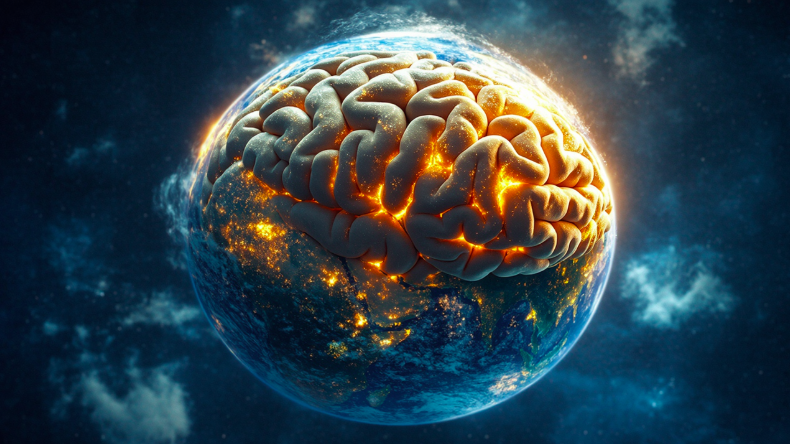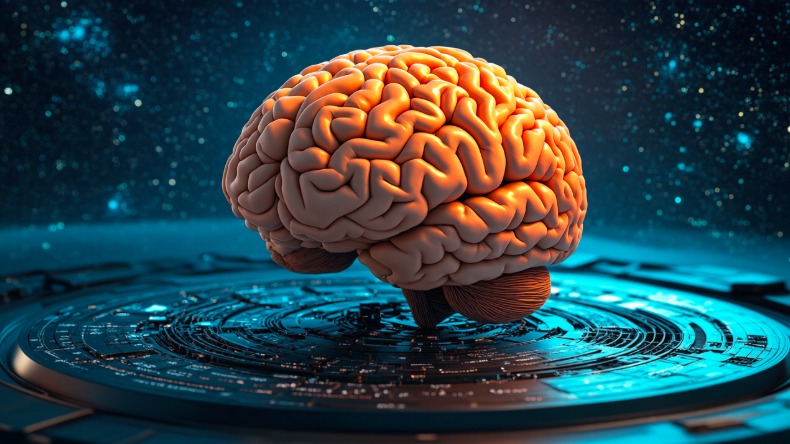Puzzle Solving Competitions: Global Brain Challenges
Explore top puzzle solving competitions worldwide. Learn how they work, what skills they test, and how to compete in logic, jigsaw, and escape events.
Mar 29, 20258.9K Shares119.3K Views

Puzzle-solving competitions are organized events where individuals or teams tackle various puzzles within set time limits, aiming to achieve the highest scores or fastest completion times. These contests assess participants' abilities in logic, speed, and problem-solving across diverse puzzle formats. Among the most challenging of these competitions are math-based puzzle competitions, where participants focus on solving complex mathematical puzzles that require strong analytical skills and quick thinking. These events attract math enthusiasts and test participants' proficiency in areas such as number theory, algebra, and combinatorics, offering a unique challenge in the puzzle-solving world.
Participants And Venues
Competitors range from casual enthusiasts to dedicated puzzlers, often coming from backgrounds in mathematics, engineering, computer science, or simply a passion for puzzles. These events occur in multiple settings:
- Online Platforms:Many competitions are hosted virtually, allowing global participation without geographical constraints.
- Educational Institutions:Schools and universities frequently organize puzzle contests to promote critical thinking and collaborative skills among students.
- International Arenas:Prestigious events like the World Puzzle Championship gather top solvers worldwide to compete on a global stage.
Types of Puzzles
The competitions encompass a wide array of puzzles, including:
- Logic Puzzles:Problems requiring deductive reasoning to arrive at solutions.
- Jigsaw Puzzles:Contests where participants race to complete puzzles, such as the World Jigsaw Puzzle Championship.
- Crosswords and Sudoku:Traditional newspaper puzzles adapted into competitive formats.
- Escape Room Challenges:Team-based scenarios where participants solve a series of puzzles to "escape" within a time limit.
Skills Tested
These competitions evaluate several key skills:
- Logical Thinking:Ability to analyze patterns and deduce solutions.
- Speed:Quick processing and response times to solve puzzles efficiently.
- Problem-Solving:Innovative approaches to overcome complex challenges.
Types Of Puzzle Competitions Around The World
World Puzzle Championship (WPC)
The World Puzzle Championship is one of the most well-known international puzzle contests. It is organized by the World Puzzle Federation and includes logic puzzles, number puzzles, and visual puzzles. Participants from over 30 countries take part every year.
World Sudoku Championship (WSC)
This event focuses on Sudoku puzzles in different formats and difficulty levels. It runs alongside the World Puzzle Championship. Both team and individual rounds are held, and players are scored based on speed and accuracy.
Jigsaw Puzzle Competitions
Events like the World Jigsaw Puzzle Championship bring teams and solo participants together to complete puzzles in the shortest time. These contests test visual skills, speed, and teamwork. Many national jigsaw tournaments are also held in Europe and Asia.
Escape Room Tournaments
Escape room competitions are team-based events where players solve a series of puzzles to "escape" within a time limit. These events are held at local venues or international expos. The Red Bull Escape Room World Championship is one of the most famous.
Crossword and Word Puzzle Contests
Competitions like the American Crossword Puzzle Tournament test vocabulary, logic, and speed. Solvers complete printed or digital crosswords under timed conditions. The contest attracts top solvers from the U.S. and beyond.
Online Puzzle Challenges
Many platforms now host virtual puzzle competitions. Websites like Logic Masters India and Puzzle Duel allow players to join timed online rounds. These include Sudoku, logic puzzles, and math-based games with leaderboards and score tracking.
Skills Required To Compete In Puzzle Events
Competing in puzzle events demands a blend of cognitive and interpersonal skills. Developing these abilities through consistent practice enhances performance and enjoyment.
Critical Thinking
Effective puzzle solvers analyze situations, evaluate options, and devise strategies to reach solutions. Engaging with puzzles regularly sharpens these analytical skills, fostering a methodical approach to complex problems.
Speed and Efficiency
In competitive settings, solving puzzles swiftly is essential. Participants must process information quickly and make prompt decisions without sacrificing accuracy. Training under timed conditions can improve response times and build confidence during competitions.
Pattern Recognition
Identifying patterns and sequences is fundamental in many puzzles. Developing the ability to recognize recurring themes or structures enables solvers to predict and locate correct pieces or answers more effectively. This skill is particularly valuable in jigsaw puzzles and number-based challenges.
Spatial Awareness
Understanding how different pieces fit together within a given space is crucial, especially in jigsaw and mechanical puzzles. Strong spatial skills allow competitors to visualize and manipulate components mentally, leading to more efficient solving strategies.
Teamwork
Many puzzle competitions involve team collaboration. Effective communication, role delegation, and collective problem-solving are vital for success in these scenarios. Teams that practice together develop synergy, leading to improved performance.
Perseverance and Patience
Puzzles can be challenging and may require extended focus. Developing patience and the determination to persist through difficult tasks is essential. Regular practice helps build resilience, enabling competitors to tackle complex puzzles without becoming discouraged.
How Puzzle Competitions Are Judged And Scored
Puzzle competitions assess participants using various scoring methods to ensure fair evaluation. These methods often include time-based scoring, accuracy assessments, penalties for hints, and bonus points for tackling more challenging puzzles. Scoring approaches can differ between solo and team events.
Time-Based Scoring
In many competitions, the primary factor is the time taken to complete a puzzle. Participants race to finish identical puzzles, with faster completion times yielding higher rankings. For example, in speed jigsaw puzzling events, individuals or teams strive to complete a set puzzle as quickly as possible. The first to finish is declared the winner, and subsequent placements are determined by completion order.
Accuracy Assessments
Some competitions prioritize accuracy over speed. Participants are evaluated based on the number of correct solutions within a given timeframe. For instance, in math-based contests like MathChallengers, individuals solve a series of problems, and scores are calculated based on the number of correct answers. This approach ensures that precision is rewarded alongside problem-solving speed.
Hint Penalties
To balance assistance and challenge, some competitions allow participants to request hints but impose time penalties for doing so. For example, in certain escape room tournaments, teams may receive additional clues at the cost of adding extra minutes to their final completion time. This system encourages participants to weigh the benefits of assistance against potential score deductions.
Bonus Points for Harder Puzzles
Competitions featuring puzzles of varying difficulty levels may award bonus points for solving more challenging puzzles. For example, in the World Sudoku Championship, puzzles are assigned point values corresponding to their complexity. Successfully completing harder puzzles yields higher scores, incentivizing participants to tackle more demanding challenges.
Solo Vs. Team Competitions
Scoring systems can differ between individual and team events. In solo competitions, participants are solely responsible for their performance, with scores reflecting personal accuracy and speed. In team competitions, collective performance is assessed, often by averaging individual scores or combining efforts on collaborative puzzles. For example, in jigsaw puzzle tournaments, teams work together to complete a puzzle, and their finishing time determines their ranking.
Benefits Of Participating In Puzzle Competitions
Participating in puzzle competitions offers numerous benefits that enhance cognitive abilities, social skills, and personal growth.
Mental Sharpness
Engaging in puzzles exercises the brain, improving problem-solving skills, attention to detail, and memory. Regular participation can lead to enhanced cognitive functions and quicker thinking.
Teamwork
Many puzzle competitions involve team participation, promoting collaboration and effective communication. Working together to solve puzzles fosters a sense of camaraderie and strengthens interpersonal relationships.
Confidence Building
Successfully completing challenging puzzles boosts self-esteem and encourages participants to tackle more complex problems. This sense of accomplishment translates into increased confidence in other areas of life.
Enjoyment and Stress Relief
Puzzles provide a fun and engaging way to relax. The focused activity can reduce stress and promote a meditative state, offering a healthy escape from daily pressures.
Prizes and Scholarships
Some competitions offer rewards such as prizes or scholarships, providing tangible incentives for participation. These rewards can support educational pursuits and recognize participants' skills and dedication.
Educational And Community Engagement
Schools, educational apps, and community organizations often use puzzle competitions to enhance learning and engagement. These events encourage critical thinking, persistence, and a love for problem-solving among participants.
🔹 FAQs – Puzzle Solving Competitions
What Are Puzzle Solving Competitions?
Puzzle solving competitionsare organized events where individuals or teams tackle various puzzles within a set time frame. These competitions assess participants' logical reasoning, problem-solving abilities, and speed. Puzzles can range from jigsaw puzzles to complex logic problems. For instance, the World Puzzle Championship features a variety of logic-based challenges designed to test participants' skills.
Who Can Take Part In Puzzle Competitions?
Puzzle competitions are open to a wide range of participants, from casual enthusiasts to seasoned solvers. Some events have age categories or skill divisions, while others are open to all. For example, the World Jigsaw Puzzle Championship welcomes participants from various countries, fostering a diverse competitive environment.
What Types Of Puzzles Are Used In These Contests?
Competitions feature a variety of puzzles, including jigsaw puzzles, crosswords, Sudoku, and logic-based challenges. The World Puzzle Championship, for instance, includes puzzles like Sudoku, nonograms, and other logic puzzles.
Are There International Puzzle Solving Events?
Yes, there are several international events. The World Puzzle Championship is an annual competition that draws participants from around the globe to solve a variety of logic-based puzzles. Similarly, the World Jigsaw Puzzle Championship focuses on speed and accuracy in assembling jigsaw puzzles.
How Are Participants Scored In Puzzle Competitions?
Scoring varies by competition. In jigsaw puzzle contests, participants race against the clock to complete a puzzle in the shortest time possible, combining speed with strategic skill. Other competitions may award points based on accuracy, time taken, and complexity of puzzles solved.
Do Puzzle Competitions Require Teamwork?
Some competitions are designed for teams, emphasizing collaboration and collective problem-solving. For example, the USA Jigsaw Nationals offers team competitions where groups work together to complete puzzles. Other events focus on individual performance, testing personal skills and speed.
How Can I Prepare For A Puzzle Solving Competition?
Preparation involves practicing different types of puzzles to enhance speed and accuracy. Engaging with various puzzle images and styles can improve adaptability during competitions. Additionally, practicing flipping pieces and sorting efficiently can save valuable time.
Are There Online Puzzle Solving Competitions?
Yes, many organizations host online competitions, allowing participants to compete remotely. These events often feature timed challenges and leaderboards, fostering a competitive yet accessible environment for puzzle enthusiasts worldwide.
What Skills Do Puzzle Competitions Improve?
Participating in puzzle competitions enhances cognitive abilities such as problem-solving, logical reasoning, and attention to detail. It also fosters patience, perseverance, and, in team settings, collaboration skills.
Can Students Join Puzzle Competitions At School?
Many schools organize puzzle competitions to promote critical thinking and engagement among students. Events like the GCHQ Christmas Challenge encourage young minds to solve complex puzzles, enhancing their problem-solving skills.
Latest Articles
Popular Articles
